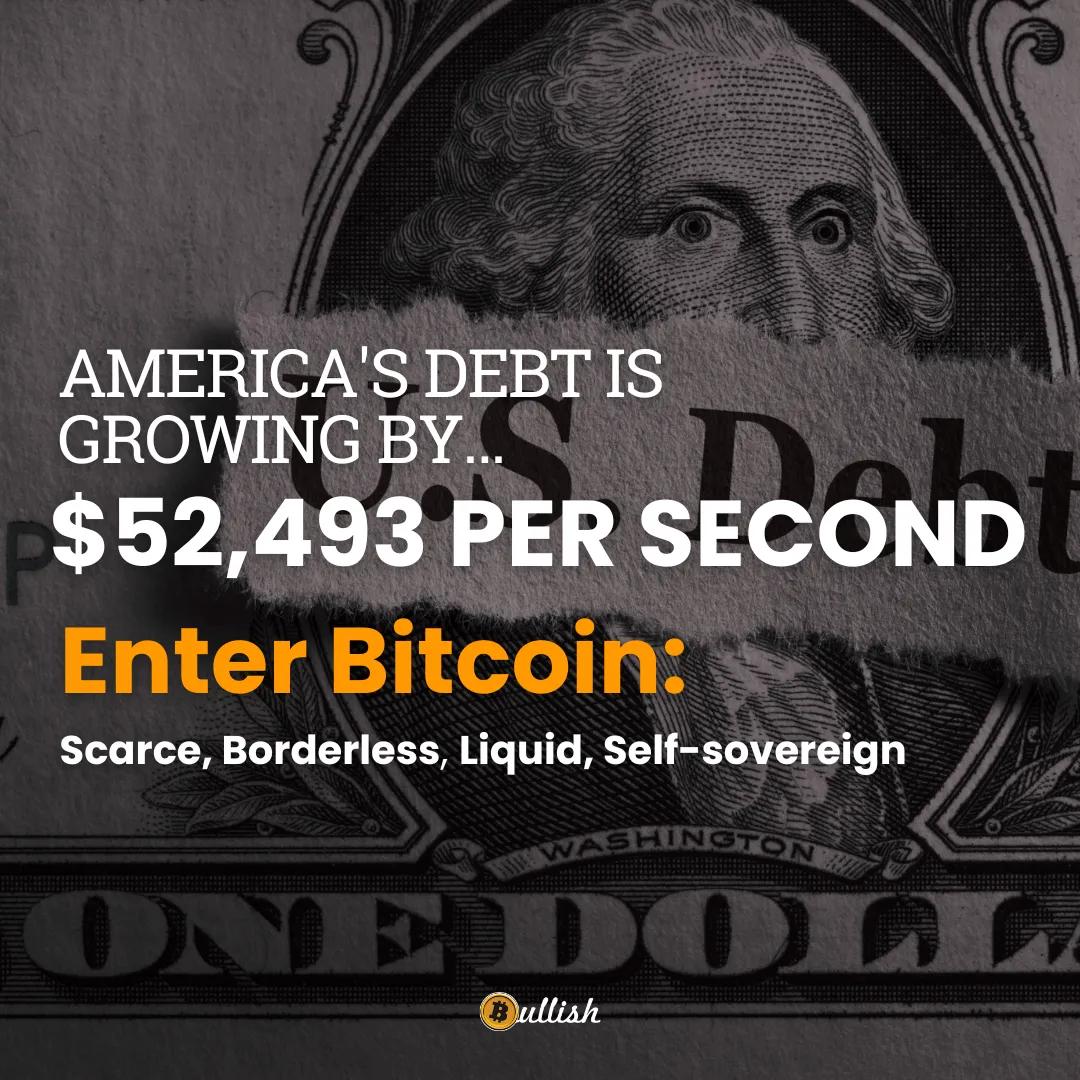
America's Debt is Growing by $52,493 Per Second — And You’re Paying for It (Whether You Know It or Not)
As of May 5, 2025, the United States’ total gross national debt has reached a staggering $36.21 trillion. Of this, $28.90 trillion is debt held by the public, while the remaining $7.31 trillion is intragovernmental debt — essentially IOUs the government owes itself, such as the Social Security Trust Fund.
This mountain of debt is not static — it’s exploding.
According to the latest Monthly Debt Update from the U.S. Congress Joint Economic Committee:
Over the past year alone, gross national debt rose by $1.66 trillion.
Relative to five years ago, it’s up by $11.15 trillion.
That’s an average increase of $4.54 billion per day, or $188.98 million per hour, or $3.15 million per minute — and a jaw-dropping $52,493.44 every second.
Let that sink in: every second, your government racks up more debt than the median U.S. household earns in an entire year.
And it’s not just some abstract figure on a spreadsheet. The burden per citizen breaks down like this:
$4,892.55 per person in new debt over the past year.
A cumulative $106,442 per person in total.
Or, per household: $12,589.28 added this year, totaling $273,891 per household.
Assuming the current rate of growth continues, the U.S. will hit $37 trillion in debt by September 30, 2025.
But Here’s the Real Kicker: This Debt Isn’t Paid with Taxes
At these levels, it’s important to understand something most people — including many in Congress — never stop to think about:
These interest payments aren’t covered by tax revenue. They’re funded by inflation.
Sure, taxes bring in revenue. But they’re nowhere near enough to service the interest on a $36 trillion debt load, let alone the principal.
Instead, the U.S. government simply issues new debt to pay the interest on the old debt. And to make that system work, the Federal Reserve steps in and buys a chunk of that debt — creating new money in the process.
This leads to inflation.
And inflation is a hidden tax. It doesn’t show up as a line item on your pay stub, but it quietly erodes the purchasing power of every dollar you’ve saved.
It’s theft in slow motion.
Why Savers Get Punished — And the Wealthy Don’t Save in Cash
If you’re a regular American trying to be responsible, budgeting, and saving, here’s the brutal reality:
Holding U.S. dollars is a losing game.
Inflation hits savers hardest. Your wages might rise slowly, but the price of everything else — groceries, housing, gas, insurance — rises faster. Meanwhile, that $10,000 sitting in your bank account buys less every year.
That’s why the wealthy don’t save in dollars.
A billionaire doesn’t park $1 billion in a savings account. Why? Because they’d be losing tens of millions in purchasing power every year due to inflation.
Instead, they hold scarce assets:
Stocks, which tend to rise with inflation.
Real estate, which generates cash flow and appreciates.
Fine art and classic cars, which are illiquid but inflation-resistant.
Gold, which has traditionally been a hedge against fiat debasement.
They don’t hoard cash. They store value.
And today, there’s a new store of value that outclasses the rest: Bitcoin.
Bitcoin: The Ultimate Inflation Hedge
Bitcoin is the first truly global, decentralized, liquid, and inflation-proof asset the world has ever seen.
Here’s why it matters:
It’s absolutely scarce: There will only ever be 21 million Bitcoin, and the issuance is cut in half every four years. No one — not a politician, not a central bank — can print more.
It’s borderless: You can carry it across continents, oceans, or hostile regimes using just 24 words in your head.
It’s liquid: You can sell it anytime, anywhere, without waiting weeks for a bank to approve it.
It’s storage-free: No vaults, no guards, no property taxes, no maintenance.
It’s uninflatable: Unlike dollars, euros, or yen, Bitcoin’s monetary policy is enforced by code, not politicians.
Gold is scarce — but you need to pay to store it, protect it, and transport it. Real estate is valuable — but you’ll owe property taxes, insurance, and repair costs. Stocks may appreciate — but they’re tied to corporate earnings, politics, and monetary policy.
Bitcoin, by contrast, is digital property that is:
Self-custodied
Deflationary
Censorship-resistant
Globally liquid
The Numbers Don’t Lie — The Dollar Is in Decline
Let’s return to the debt numbers. If the U.S. is adding $52,493 of debt every second, ask yourself: how can that ever be paid back?
It can’t.
The goal isn’t to pay it back. The goal is to inflate it away.
If inflation runs at 4%–8% annually, then a $36 trillion debt gets smaller in real terms over time. The government pays it back in cheaper dollars.
But the flip side is that you get paid in cheaper dollars, too.
The result: Americans are working more but falling further behind — because the money they earn, save, and invest is being stealthily devalued.
Bitcoin flips that on its head.
Bitcoin is hard money in a world drowning in debt.
You Can Opt Out
You don’t have to wait for Congress to fix the debt. (Spoiler alert: they won’t.)
You don’t have to trust that inflation will somehow magically slow down.
You don’t even need a finance degree to beat the system.
You just need to learn how to opt out.
Set up a Bitcoin wallet.
Take self-custody of your funds.
DCA (dollar-cost average) into Bitcoin weekly or monthly.
Memorize your seed phrase.
Sleep soundly.
Bitcoin is more than just an investment. It’s a life raft.
Final Thoughts
As America’s national debt races toward $37 trillion — and every man, woman, and child’s “share” crosses $106,000 — the financial system is clearly unsustainable.
Interest payments are exploding.
Inflation is rising.
And savers are getting robbed.
You don’t have to play by their rules.
Bitcoin is not just another asset — it’s a new monetary foundation. One that can’t be inflated, manipulated, or confiscated. One that empowers individuals to preserve wealth across borders and across generations.
The future isn’t waiting. It’s here.
And it’s denominated in sats, not cents.
🔗 Source: U.S. Congress Joint Economic Committee Monthly Debt Update – May 2025
🚀 Ready to start stacking sats? Visit BullishBTC.com



